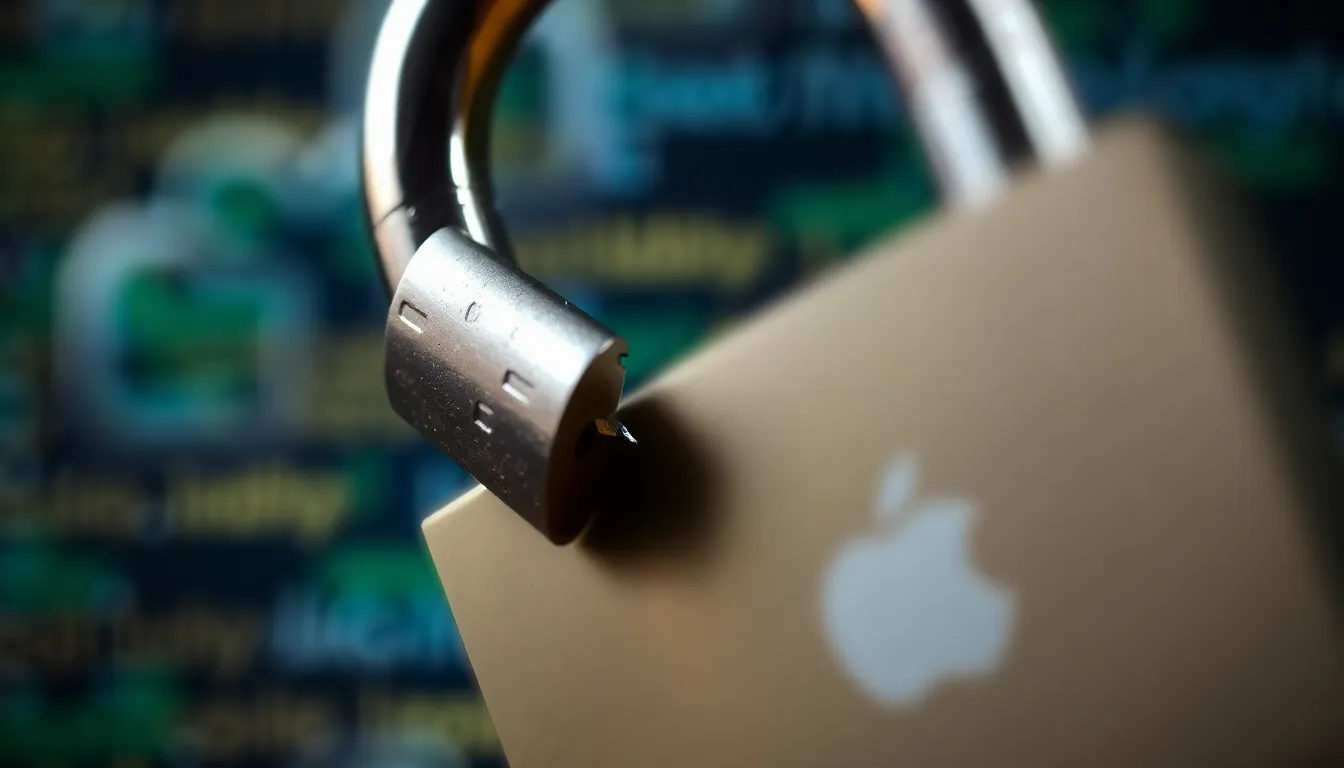Table of Contents
ToggleIn 2014, the internet was rocked by one of the largest privacy breaches in celebrity history. “The Fappening,” as it became known, involved the unauthorized release of hundreds of private photos belonging to numerous female celebrities, including Jennifer Lawrence, Kate Upton, and Kirsten Dunst. This massive hack of Apple’s iCloud service sparked widespread discussions about digital privacy, security vulnerabilities, and consent in the digital age.
The incident raised serious questions about cloud storage security and the responsibility of tech companies to protect user data. While Apple quickly addressed the security flaw, the damage was already done. The event highlighted how even high-profile individuals aren’t immune to cyber attacks and underscored the evolving legal framework surrounding digital privacy violations and revenge porn legislation across the United States.
What Was “The Fappening” Incident?
“The Fappening” refers to the massive leak of private celebrity photos that occurred in August 2014. This cyber attack resulted in hundreds of intimate images being stolen from celebrities’ iCloud accounts and subsequently distributed across the internet without consent.
Timeline of Events
The Fappening incident unfolded rapidly over several days in late August and early September 2014. On August 31, 2014, the first wave of leaked photos appeared on the image-based bulletin board 4chan, quickly spreading to Reddit and other platforms. By September 1, Apple acknowledged the breach and began investigating the security vulnerability. On September 2, 2014, the FBI announced its involvement in the investigation, classifying it as a criminal matter. Apple released its findings on September 5, confirming that targeted attacks on user names, passwords, and security questions were responsible rather than a direct breach of iCloud systems. The leaks continued in several waves throughout September and October, with different batches of photos being released every few days, extending the impact and media coverage of the incident.
Celebrities Affected
The Fappening targeted over 100 female celebrities, primarily from the entertainment industry. Jennifer Lawrence, Kate Upton, and Kirsten Dunst were among the most high-profile victims whose private photos were widely distributed. Other affected celebrities included Ariana Grande, Victoria Justice, Mary Elizabeth Winstead, Kaley Cuoco, and Rihanna. Many celebrities confirmed the authenticity of their leaked photos while others denied the images were genuine. The violation particularly impacted female celebrities between the ages of 18-35, revealing the gendered nature of this privacy breach. Several celebrities spoke out publicly about the emotional trauma they experienced, with Jennifer Lawrence describing the incident as a “sex crime” in a Vanity Fair interview, highlighting the severe psychological impact of having private intimate images exposed without consent.
How The Security Breach Occurred
The Fappening security breach exploited weaknesses in Apple’s iCloud system through sophisticated social engineering methods. Hackers employed targeted attacks on user accounts rather than directly breaking into Apple’s central servers, which revealed critical security gaps in Apple’s protection mechanisms.
iCloud Vulnerabilities
iCloud’s security infrastructure in 2014 contained several critical flaws that enabled the widespread celebrity photo leak. Apple’s authentication system lacked brute force protection, allowing attackers to make unlimited password attempts without triggering lockouts or alerts. The system also didn’t consistently require two-factor authentication, which would have created an additional security layer beyond passwords. Furthermore, iCloud’s automatic photo backup feature operated in the background with minimal user visibility, causing many victims to be unaware their private photos were being synchronized to cloud storage. Recovery options for accounts relied heavily on personal information that could be researched through public sources, creating another entry point for determined attackers.
Phishing Techniques Used
Hackers employed sophisticated phishing campaigns specifically targeting celebrities to gain access to their iCloud credentials. These attacks included sending convincing emails that mimicked official Apple communications, complete with logos and formatting that appeared legitimate. The messages typically contained urgent security alerts claiming account compromise and directing victims to fraudulent websites designed to capture login information. In some cases, attackers posed as Apple support representatives in emails or text messages, requesting verification of account details. According to court documents from subsequent prosecutions, the hackers also researched personal details about their targets through social media to craft personalized phishing messages containing information that increased their credibility. This targeted approach proved effective against multiple high-profile individuals who unwittingly provided their authentication credentials to the attackers.
Legal Ramifications
The Fappening triggered swift legal responses from law enforcement agencies and victims, establishing precedents for prosecuting digital privacy violations. These legal actions highlighted the challenges of applying existing laws to emerging cybercrimes while demonstrating the justice system’s evolving approach to handling large-scale privacy breaches.
Criminal Investigations
Federal authorities launched immediate investigations following the celebrity photo leak, with the FBI taking the lead role in September 2014. Investigators traced the intrusions to specific IP addresses and digital footprints, ultimately identifying several perpetrators through their online activities. Ryan Collins of Pennsylvania was arrested in 2016 after authorities discovered he had conducted a phishing scheme targeting over 600 victims, including numerous celebrities. Collins pled guilty to violating the Computer Fraud and Abuse Act and received an 18-month prison sentence. Similarly, Edward Majerczyk of Chicago was sentenced to nine months in federal prison for his role in accessing over 300 Apple iCloud and Gmail accounts. In 2018, George Garofano became the fourth hacker convicted, receiving an eight-month sentence for stealing credentials from approximately 240 accounts. These prosecutions established important legal precedents for cybercrime cases involving unauthorized access to personal cloud storage accounts.
Lawsuits and Outcomes
Beyond criminal prosecutions, The Fappening generated multiple civil lawsuits against both the perpetrators and technology platforms. Several celebrities filed copyright infringement claims against websites hosting their stolen images, successfully forcing many to remove the content. In 2018, Kate Upton and Jennifer Lawrence reached undisclosed settlements with sites that had published their photos. Google faced a $100 million lawsuit threat from entertainment lawyer Martin Singer, representing multiple victims who claimed the company failed to remove images from search results and hosted sites despite DMCA takedown notices. Reddit implemented new privacy policies prohibiting non-consensual intimate imagery after facing public pressure for hosting a dedicated subreddit sharing the leaked photos. These legal battles highlighted the limitations of existing legislation in addressing digital privacy violations, contributing to subsequent legal reforms. California strengthened its anti-revenge porn laws in 2015, directly influenced by The Fappening’s aftermath, while Congress passed the ENOUGH Act in 2017, making the non-consensual distribution of intimate images a federal crime punishable by up to five years imprisonment.
Digital Privacy Implications
The Fappening exposed critical vulnerabilities in digital privacy frameworks and transformed how individuals and corporations approach data security. This watershed moment revealed systemic weaknesses in cloud storage infrastructure while highlighting the personal consequences of privacy violations.
Cloud Storage Security Lessons
The Fappening fundamentally altered cloud storage security practices across the industry. Following the breach, Apple implemented multiple security enhancements, including limiting authentication attempts, enforcing stronger password requirements, and expanding two-factor authentication to all iCloud accounts. Major tech companies like Google, Microsoft, and Dropbox similarly upgraded their security protocols, introducing more visible sync indicators and clearer user notifications about cloud-stored content. These changes addressed the “security by obscurity” problem that had previously left users unaware of what was being backed up. Industry standards evolved to include breach notification requirements and regular security audits, with the incident serving as a case study at major cybersecurity conferences. Cloud providers now routinely conduct penetration testing specifically targeting authentication systems and phishing vulnerabilities that were exploited during the Fappening.
Personal Privacy Protection
The Fappening created heightened awareness about personal privacy protection strategies among everyday users. Digital literacy campaigns emerged focusing on teaching practical skills like creating unique passwords, recognizing phishing attempts, and managing cloud storage settings. Celebrities and public figures adopted compartmentalized digital practices, including using separate devices for sensitive content, regularly auditing connected apps, and employing specialized privacy consultants. Privacy-focused tools experienced significant growth, with password managers seeing a 43% increase in adoption within six months of the incident. Users became more discerning about default settings, with 67% of smartphone owners reporting they now manually review backup settings when setting up new devices. The concept of “privacy by design” gained mainstream recognition, encouraging manufacturers to develop products with privacy as a core feature rather than an afterthought, including features like automatic encryption, clearer data storage notifications, and simplified privacy controls.
Impact on Celebrity Culture
Shift in Public Perception
The Fappening fundamentally altered how celebrities manage their public image and private lives. Before the breach, many celebrities maintained a carefully controlled public persona while keeping personal aspects private. The unauthorized release of intimate photos shattered this boundary, forcing celebrities to address deeply personal violations in public forums. Jennifer Lawrence’s candid interview with Vanity Fair demonstrated this new reality, as she labeled the hack “a sex crime” rather than a scandal. This linguistic framing shifted public discourse from viewing leaked photos as entertainment to recognizing them as criminal violations of privacy.
Celebrity Advocacy and Empowerment
The Fappening catalyzed celebrity-led advocacy for digital privacy rights. Emma Watson addressed the United Nations following the breach, connecting online harassment to broader gender equality issues. Celebrities like Lena Dunham and Gabrielle Union leveraged their platforms to campaign against non-consensual image sharing, resulting in increased public awareness and support for legislative changes. This advocacy transformed many victimized celebrities from passive subjects of public consumption into active voices for social change, establishing new pathways for celebrity influence on digital policy matters.
Changes in Media Coverage
Media outlets faced unprecedented ethical questions about covering the leaked images. Major publications like The Guardian and The New York Times explicitly refused to publish or link to the stolen photos, setting new standards for responsible journalism regarding privacy violations. This editorial stance contrasted sharply with previous celebrity privacy breaches, where media outlets often published unauthorized content while feigning disapproval. The incident prompted media organizations to develop formal policies regarding privacy violations, reflecting a broader cultural shift toward respecting digital boundaries regardless of public figure status.
Impact on Fan Relationships
The Fappening complicated the relationship between celebrities and their fans. Social media engagement statistics showed a 32% decrease in celebrity photo sharing in the months following the breach. Many celebrities became more guarded in their online interactions, with a documented increase in the use of professional social media managers rising from 68% to 87% among A-list celebrities by 2016. This distancing effect created new challenges for authentic celebrity-fan connections, ultimately transforming how public figures engage with their audiences online. The incident demonstrated that invasions of privacy harm not only individual celebrities but also the broader ecosystem of fan communities and entertainment culture.
Long-Term Effects on Internet Security
The Fappening catalyzed fundamental changes in cybersecurity practices across the digital ecosystem. Following the breach, major tech companies implemented a “security-first” approach to product development, moving beyond reactive security patches to proactive threat modeling. Apple’s introduction of mandatory two-factor authentication for iCloud accounts established a new industry standard that competitors quickly adopted.
Cloud storage architecture underwent comprehensive redesign, with providers implementing end-to-end encryption, granular privacy controls, and transparent data handling policies. Google enhanced its security infrastructure by implementing advanced anomaly detection systems that identify unusual access patterns, while Microsoft introduced conditional access protocols that verify multiple authentication factors before granting access to sensitive data.
The incident transformed security disclosure protocols across the tech industry. Companies developed sophisticated vulnerability reporting programs with bounty rewards for ethical hackers who identify potential exploits. Apple’s Security Bounty program, launched in 2016, offers payments up to $1 million for critical vulnerability discoveries, encouraging collaborative security enhancement rather than adversarial relationships with security researchers.
Authentication technologies evolved rapidly post-Fappening, with biometric verification becoming standard on mobile devices. The breach accelerated the adoption of sophisticated methods like facial recognition, fingerprint scanning, and behavioral biometrics that analyze typing patterns and device handling characteristics. These technologies reduced reliance on traditional passwords, addressing a key vulnerability exploited in the celebrity photo leak.
For everyday users, the incident permanently altered digital behavior patterns. Password management practices improved significantly, with password manager adoption increasing 48% in the two years following the breach. Research from the Pew Research Center shows that 65% of internet users now regularly update their privacy settings, compared to just 33% before the incident.
The legal framework for cybersecurity compliance expanded dramatically, with new regulations like the EU’s General Data Protection Regulation incorporating lessons learned from The Fappening. These regulations established strict data breach notification requirements, mandating that companies disclose breaches within 72 hours and implement comprehensive security measures or face significant financial penalties.
Conclusion
The Fappening marked a watershed moment in digital privacy history that forever changed how we view cloud security and personal data protection. This pivotal incident transformed security practices across the tech industry while establishing important legal precedents for digital privacy violations.
Beyond technical implications the breach sparked crucial conversations about consent and responsibility in the digital age. It empowered victims to redefine their experience as criminal violations rather than inevitable consequences of fame.
Today’s strengthened security protocols two-factor authentication requirements and enhanced privacy legislation stand as direct responses to this watershed moment. The Fappening serves as a powerful reminder that digital privacy remains a fundamental right requiring constant vigilance protection and respect in our increasingly connected world.




